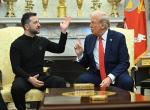The recent row between Vietnam and China in the South China Sea is yet another illustration of ‘peaceful rise of China’. It began in the last week of May and continued through second week of June, when in two similar incidents, exploration cables of Vietnamese oil and gas survey ships were cut off by Chinese patrol and fishing boats respectively. The first clash occurred between a Vietnamese oil and gas survey ship and Chinese patrol boats in an area around 120 km off the south-central coast of Vietnam and about 600 km south of China’s Hainan Island. The second incident took place in May 26 when the cables of a Vietnamese vessel of the state energy company PetroVietnam, conducting a seismic survey inside its 200 nautical mile exclusive economic zone, were cut off by a Chinese fishing boat, whose fishing nets were claimed to have entangled with the vessel’s cables.
The wrangling between Vietnam and China came just ahead of the 10th IISS Asia Security Summit in Singapore. On June 3, the Defense Ministers of the two countries General Phung Quang Thanh and Lieutenant-General Liang Guanglie discussed the latest incidents during a meeting on the side-lines of the summit. General Thanh also made an objective assessment of the incident in his speech in the summit. It is reported that Vietnam wanted to give a clear picture of the incident to the international community because the captain of the vessel engaged in seismic survey was a Russian and there were several crew members of different nationalities.1 The Vietnamese Defense Minister categorically stated in his speech that as a littoral state which is inflicted by wars, the people of Vietnam deeply understand the values of peace and stability for the national construction and development. He emphasised that Vietnam had exercised patience in managing the incident with peaceful means in accordance with the international laws and the principle of protecting national sovereignty while preserving peace and stability in the South China Sea, and maintaining the friendly relationship with neighbouring countries. General Thanh expressed his desire that repetition of similar incidents should be avoided.2
Meanwhile, messages were posted over the internet and other social networking sites, which called for a peaceful rally against China’s policies in the South China Sea. Hundreds of Vietnamese gathered in front of the Chinese Embassies in Hanoi and Ho Chi Minh City on June 5th. In addition, amidst the maritime border dispute, there were reports of cyber attacks by Vietnam as well as China on each other’s websites including portals run by the governments the two countries. The dispute appears to have escalated with Vietnam holding nine hours of live-fire naval exercises on June 13 around the Hon Ong Island which is about 40 km from its coastline. The island is only 250 km away from the Paracel archipelagos (Xisha Islands) which is theatre of the present dispute.3
Since 1990s, Vietnam, in absence of its trusted ally the Soviet Union, has been trying its best not to offend its increasingly robust northern neighbour China, whose military has modernized with new equipment, new tactics, and new doctrine, much of which emerged from the assessments of its poor military performance against Vietnam in 1979 War.4 Several conflicting situations occurred between Vietnam and China along the land border and in the South China Sea between 1992 and 1998, and finally Vietnam conceded excessive territory in two agreements with China – the Land Border Treaty in 1999 and the Agreement of the Demarcation of Waters, Exclusive Economic Zones and Continental Shelves in the Gulf of Tonkin in 2000. Though Vietnamese government justified its stand, many people in Vietnam think that the communist leaders of the country are too obsequious in dealing with China.
The Vietnamese authority became concern and suspicious as the anti-China demonstrations in Vietnam spread via internet. The communist regime in Vietnam does not tolerate any kind of dissent and protests in this country are very rare, especially those of a political nature. One of the foremost concerns of the Hanoi government is public agitation, which it fears, could be exploited to bring down the regime. The government of Vietnam denied that the protests in Hanoi and Ho Chi Minh City had any kind of official sanction, it is however understandable that mass rallies in Vietnam are not possible without government approval. Vietnam claimed that military exercise in its territorial water was a routine affair and not directed against other country, it is however obvious that in order to pacify public angers the authority went ahead with the exercise amidst serious objections raised by the PRC.
The Vietnamese authority and the people observed how Japan gave in to the Chinese demands in a similar dispute with China near the Senkaku Islands that took place in September last year. General Thanh’s official statement on the cable incident in Asia Security Summit, naval exercise and anti-China public protests would possibly help Vietnam for some time to resist Chinese expansion in its maritime space.
China, on the other hand is relieved because the USA opted to maintain neutrality in the present dispute. After all it’s a dispute between two natural allies and communist regimes of both the countries know the pain of a continuous fear of being thrown out of power.
------------------------------------------------------------------------------------------------------------------------
- Vietnam Defence Minister meets with Chinese counterpart, June 04, 2011, http://www.qdnd.vn/qdndsite/en-US/75/72/183/161/163/150182/Default.aspx
- Phung Quang Thanh, “Responding to New Maritime Security Threats” in the 10th IISS Asia Security Summit, Singapore, June 5, 2011, http://www.iiss.org/conferences/the-shangri-la-dialogue/shangri-la-dialogue-2011/speeches/fifth-plenary-session/general-phung-quang-thanh/
- “越南昨在南海军演9小时企图挑衅中国” http://www.dushi.ca/tor/news/bencandy.php/fid11/lgngbk/aid43118
- Dr. Henry J. Kenny, “Sino-Vietnamese Relations in the 21st Century”, November 13, 2003, Conference on Sustainable Development in Vietnam, University of Maryland, http://www.vpa-inc.org/conference/pdf/Kenny.pdf
-----------------------------------------
Published Date : 20th June, 2011









Post new comment